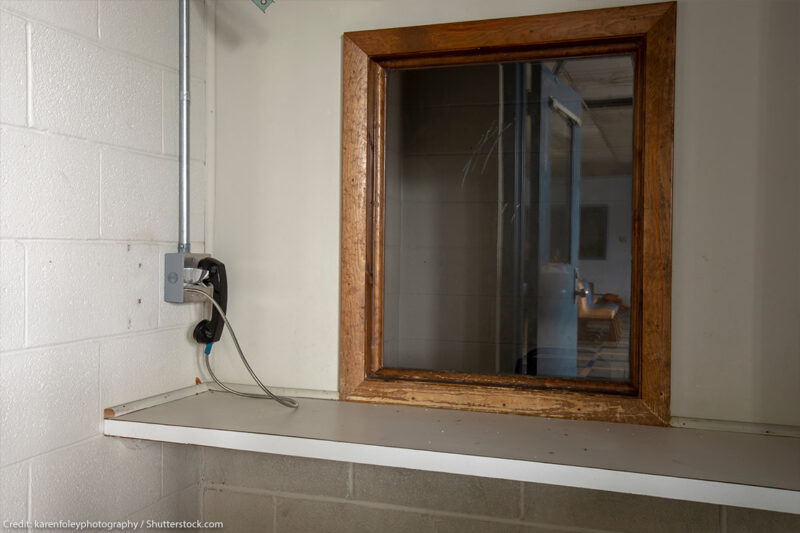ICE Makes It Impossible for Immigrants in Detention to Contact Lawyers


“Ben G.” is a 35-year-old veterinarian from Nicaragua who fled to the United States after he was beaten and tortured by police. When he crossed the border into the U.S., he requested asylum. U.S. Immigration and Customs Enforcement (ICE) eventually transferred Ben to the Winn County Correctional Center, an ICE detention facility in rural Louisiana located four hours away from the nearest metropolitan area. It is also the facility with the fewest immigration attorneys available in the entire country.
Despite passing the government’s initial screening and having a credible fear of persecution, Ben was still unable to find a lawyer. As a fellow detained person noted, “without having knowledge, we’ll go directly to the slaughterhouse.”
Ben’s story illustrates the monumental barriers that detained immigrants face in finding lawyers to represent them. As described in a letter sent today by the American Immigration Council, the ACLU, and 88 legal service provider organizations to Department of Homeland Security Secretary Alejandro Mayorkas, ICE detention facilities have systematically restricted the most basic modes of communication that detained people need to connect with their lawyers and the rest of the outside world, including phones, mail, and email access.
This must change. The immigration detention system is inherently flawed, unjust, and unnecessary. The best way to eliminate these barriers to justice is to release people from detention.
Although immigrants have the right to be represented by lawyers in immigration proceedings, they must pay for their own lawyers or find free counsel, unlike people in criminal custody who have the right to government-appointed counsel. In many cases, detained immigrants cannot find lawyers because ICE facilities make it so difficult to even get in touch and communicate with attorneys in the first place.
The importance of legal representation for people in immigration proceedings cannot be overstated. Detained people with counsel are 10 times more likely to win their immigration cases than those without representation. Yet the vast majority of detained people — over 70 percent — faced immigration courts without a lawyer this year.
ICE has set the stage for this problem by locating most immigration detention facilities far from cities where lawyers are accessible. Each year, ICE locks up hundreds of thousands of people in a network of over 200 county jails, private prisons, and other carceral facilities, most often in geographically isolated locations, far from immigration attorneys.
Even when attorneys are available and willing to represent detained people, ICE detention facilities make it prohibitively difficult for lawyers to communicate with their detained clients, refusing to make even the most basic of accommodations. For example, many ICE facilities routinely refuse to allow attorneys to schedule calls with their clients.
As described in the letter, the El Paso Immigration Collaborative reported that staff at the Torrance County Detention Facility in New Mexico have told their lawyers that they simply don’t have the capacity to schedule calls in a timely manner, delaying requests for more than one week or more.
The University of Texas Law School’s Immigration Law Clinic attempted to schedule a video teleconferencing call with a client at the South Texas ICE Processing Center. An employee of the GEO Group, Inc., which runs the facility, told them that no calls were available for two weeks.
Even when detained people can speak with lawyers, ICE detention facilities cut these calls short, leaving legal providers like the Florence Immigrant and Refugee Rights Project in Arizona unable to complete intakes for potential clients in complex immigration cases in less than 20 minutes.
ICE detention facilities also fail to deliver legal mail on time to detained people, refuse to give detained people faxed documents, prevent access to email, and even confiscate legal paperwork, all of which violate ICE’s own policies.
For example, as an attorney with Mariposa Legal Services in Indiana reported that the Boone County Jail in Kentucky, which detains immigrants for ICE, has failed to replace a faulty fax machine — the only mechanism for requesting client calls or visits. Boone County has also refused to allow any calls on Thursdays, brought incorrect people to meet with attorneys, and has used attorney-client rooms as housing cells when the facility is overcrowded. The attorney also reported that the facility failed to deliver legal paperwork sent via FedEx to a client in detention.
This is only the tip of the iceberg. Legal advocacy groups have documented how ICE and telecommunications corporations inhibit communication between detained immigrants and their families, advocates, and allies. On multiple occasions, federal lawsuits have forced ICE to make improvements designed to provide immigrants in detention access to counsel and the courts in select facilities. ICE must continue to do so at those select facilities and expand those protections to all facilities in the detention system.
Immigration detention is inhumane, and it is a key barrier to access to justice. But so long as people are detained, ICE must ensure that detention facilities provide immigrants with timely access to counsel.



